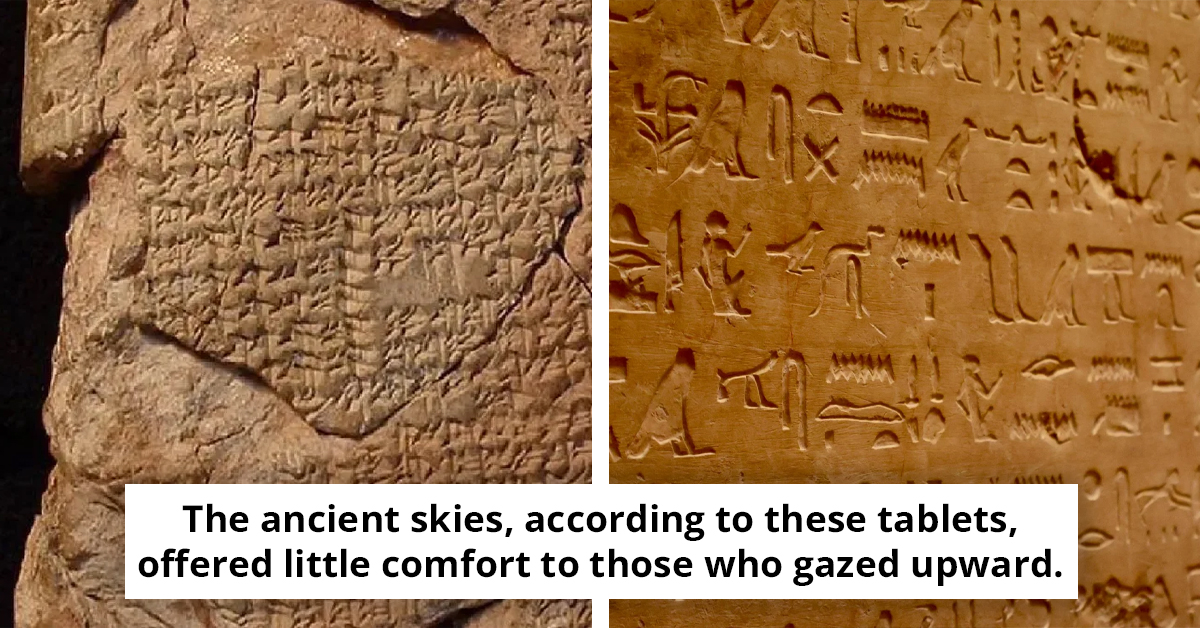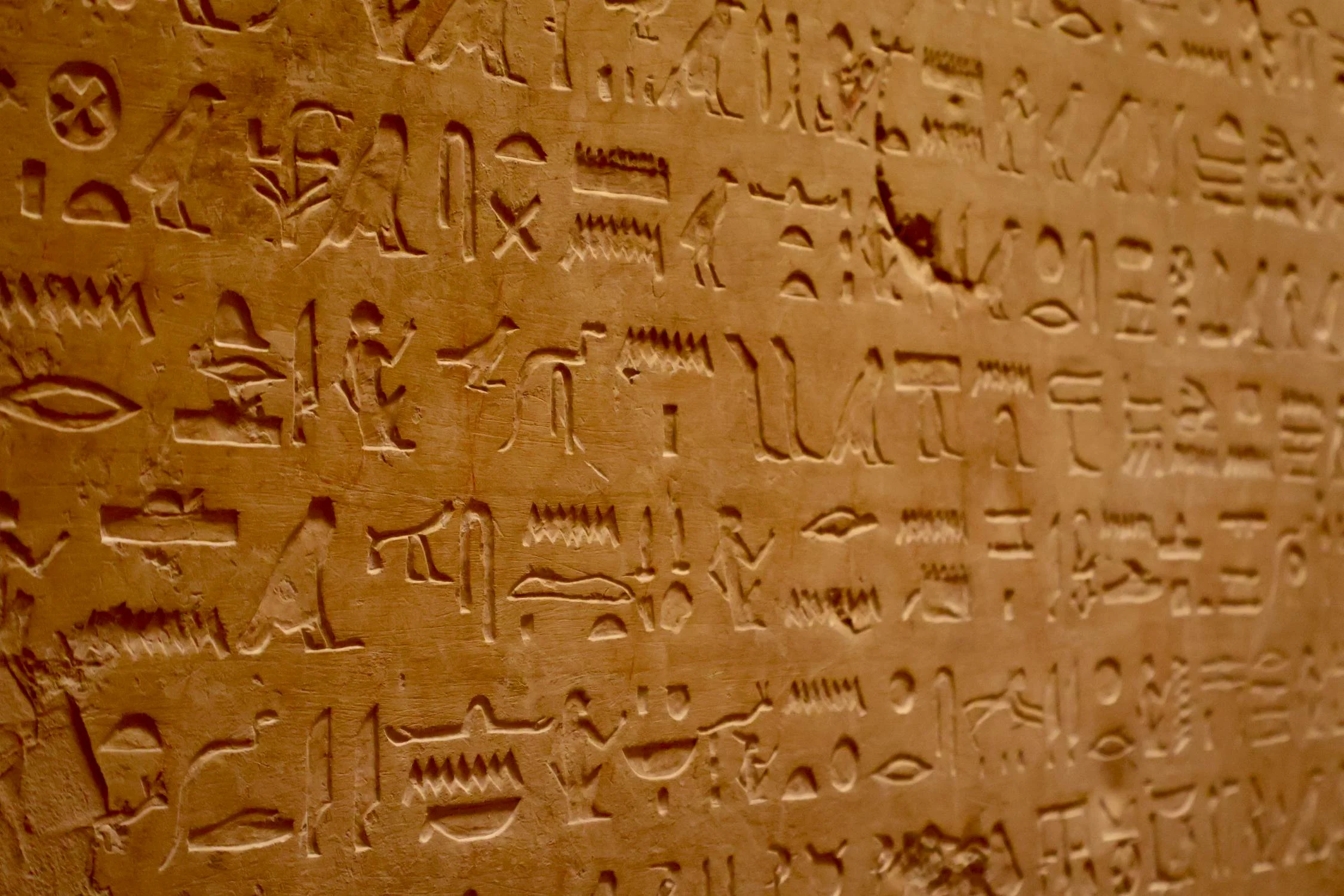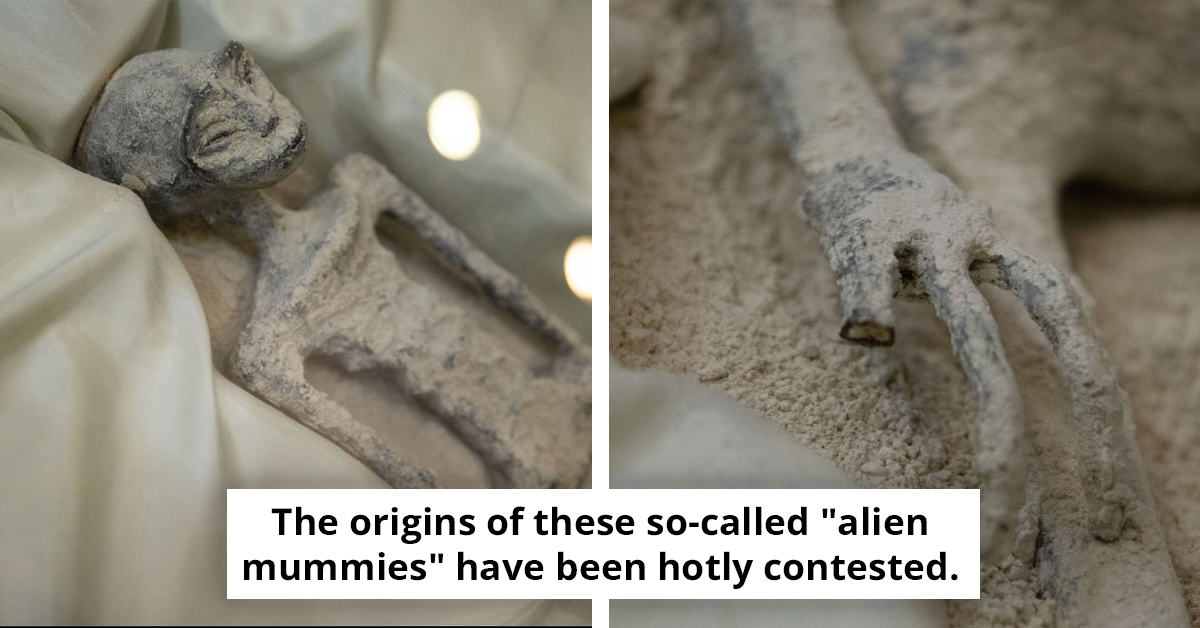
Ancient Warnings—Researchers Finally Decode 4,000-Year-Old Mesopotamian Prophecies
The stone’s warnings speak of a disaster on the horizon.

Researchers have unlocked the secrets of four ancient Mesopotamian tablets that have been silent witnesses to history for roughly 4,000 years. These tablets, discovered over a century ago in the ruins of what was once the city of Sippar, now present a chilling window into the beliefs and fears of an ancient civilization.
The translations, recently published in the Journal of Cuneiform Studies and reported by Live Science, reveal a series of ominous warnings and prophecies that must have kept ancient Babylonian rulers on edge.
The tablets had been safely stored in the British Museum, untouched and untranslated, until Andrew George and Junko Taniguchi, the study’s authors, took on the task of deciphering their ancient script. Their research uncovers what might be the oldest known compendia of lunar-eclipse omens, dating back to a time when the Mesopotamian people believed that the gods communicated through the skies.
The people of this ancient civilization were convinced that celestial events like eclipses and shadow movements carried divine messages, often of doom and despair rather than peace or prosperity.
The ancient skies, according to these tablets, offered little comfort to those who gazed upward. The prophecies inscribed on the stone warned of death, destruction, and disaster.
One tablet foretells that “a king will die” and that the region of Elam, now part of modern-day Iran, would face total “destruction” if “an eclipse becomes obscured from its center all at once [and] clear all at once.”
The stones also issued warnings about the “downfall” of Subartu and Akkad, regions in what is now northern Iraq, if “an eclipse begins in the south and then clears.”
These grim predictions didn’t stop at political upheaval. The tablets also described natural and military calamities.
One warned that “a large army would fall,” while another predicted an “attack on the land by a locust swarm,” which would lead to widespread “losses of cattle.” Such dire messages would have been vital information for a king, guiding decisions on war, diplomacy, and religion in an era where the line between natural and supernatural was razor-thin.
![One tablet foretells that “a king will die” and that the region of Elam, now part of modern-day Iran, would face total “destruction” if “an eclipse becomes obscured from its center all at once [and] clear all at once.”](https://static.dailysquared.com/posts/7f5f0c7bfd71eab47f92454eb94f0364_33034_700.jpg)
It’s fascinating to consider that while many of these omens seem to be based on superstition, Andrew George suggested that some might have been rooted in real historical events.
He speculated that these prophecies could have originated from actual experiences—perhaps an eclipse coincided with a disastrous event, leading the people to believe in the predictive power of these celestial omens. But in most cases, these predictions likely resulted from coincidences rather than evidence of any divine intervention.
The role of these tablets was not merely to scare; they served as a tool for royal advisors who were tasked with keeping the king informed about potential threats. The king’s advisors, who were experts in interpreting these omens, would meticulously observe the night sky, comparing their findings to the extensive records of celestial events.
Their interpretations of these prophecies were crucial, shaping the decisions of their rulers and, consequently, the fate of their people.
 Photo by Yannick B from Pexels
Photo by Yannick B from PexelsThese ancient warnings, now deciphered, offer a rare glimpse into a world where the heavens were seen as a divine battlefield, with every eclipse and shadow movement potentially signaling the end of a king or the downfall of a kingdom.
While modern science might dismiss these predictions as mere superstition, the impact they had on the lives of those ancient people cannot be understated. They remind us of a time when the mysteries of the universe were interpreted through the lens of fear and reverence, leaving behind a legacy of cautionary tales carved in stone.
Comment down your thoughts, or share this article for all your family and friends to see!
Sophia







